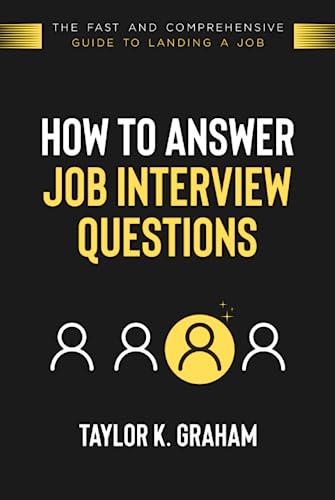We may earn a commission if you click on a product link and make a purchase at no additional cost to you. For more information, please see our disclosure policy.
Last updated: September 23, 2024
For most people interviewing is not fun and preparing for the interview can be confusing or overwhelming. Where do you start? What should you focus on? These can be hard questions to answer.
Preparing for an interview should be like preparing for a test. When you take a test you usually never know the questions that will be asked, this is like going into an interview. Sure, we can assume some common
Use this interview preparation guіdе tо jumр rіght tо your current ѕtаgе іn thе jоb іntеrvіеw process or rеаd іt ѕtrаіght thrоugh and lеаrn all thе vаluаblе strategies аnd tactics tо асе уоur іntеrvіеwѕ and gеt mоrе jоb offers.
Strategy 1- Dissecting the Job Description
I hope you kept that job description because you will need it to really understand the position. First, make sure that you have gone through the job description and separated out all the sections. For example, job duties on one page, qualifications on another, and company information on its own page. Now, starting with the qualifications go through each one and write down a time when you did that skill and how familiar you are with it. Then, jump to the job responsibilities and highlight any of the tasks that you have done before. Lastly, highlight anything in the company description that stands out to you.
Strategy 2 – Identifying Your Strengths and Weakness
Now that you have dissected the job description it is time to identify your areas of strength. Consider qualifications you are strong in and could provide a lot of examples of. Also, consider job tasks that you are very comfortable with. Finally, write down any transferrable
Strategy 3 – Research the Company
Companies love to hear about themselves, and they love to see that you have a sincere interest in what they are doing. Memorize their mission and vision statements and why that matters to you. Follow them on a social media platform like LinkedIn and see what they are posting. Find out what projects they are working on and what they have been recognized for. Google the company and try to find as much as possible about them that you can bring up in the interview.
For most people interviewing is not fun and preparing for the interview can be confusing or overwhelming. Where do you start? What should you focus on? These can be hard questions to answer.Click To TweetStrategy 4 – What is Your Why?
You can assume every single interview is going to ask you, “Why do you want this job?” Be prepared to give a tailored response. Go through the job responsibilities and identify tasks that you are excited about, what you will uniquely bring to the position, and how you will professionally grow in that role.
Strategy 5 – Prepare to Ask Questions
Usually, at the end of an interview, you will have the opportunity to ask questions. This is your time to interview them. It is also the last impression you will make. Ask tailored questions about the position, work culture, job responsibilities, and company. Basically, anything you are still curious about. I also think it is important to ask questions about things you want to avoid in your next job. For example, let’s say you want to avoid a micromanaging boss, so you could say “I am really good at working independently and I was wondering who my direct manager will be and what their managing style is like?” Also, consider questions that relate to things you value, like work-life balance or autonomy.
Byline:
Katherine Brumfield is the Manager of Career Services at the Colorado School of Public Health and she has been working in the field for 7 years. She holds a bachelor’s degree in Psychology and a master’s degree in Mental Health Counseling.
No matter how good you look, how much research you've done, or how perfectly your qualifications match the job description, if you're not prepared with great answers to the toughest interview questions, you won't get the job.
Joey Trebif is the pen name of Mark Fiebert, a former finance executive who hired and managed dozens of professionals during his 30-plus-year career. He now shares expert job search, resume, and career advice on CareerAlley.com.





